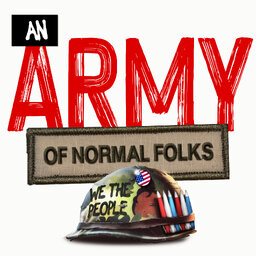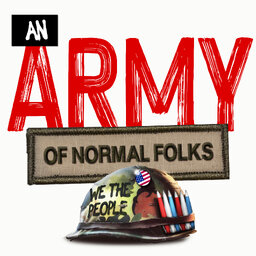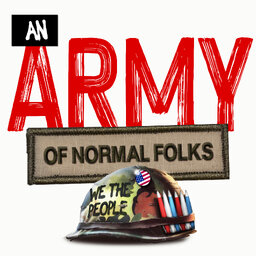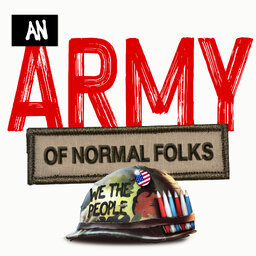Gaby Laurent: Adopting A Baby Withdrawing From Opioids (Pt 2)
Right after surviving a life and death battle with cancer, while pregnant, Gaby and her husband decided to adopt a baby that was experiencing withdrawal from opioids in their mother’s womb. Her story that’s chronicled in her new book “Wrinkles Welcome” is an extraordinary one of perseverance, love, and forgiveness.
In 1 playlist(s)
An Army of Normal Folks
Our country’s problems will never be solved by a bunch of fancy people in nice suits talking big wor…Social links
Follow podcast
Recent clips

How to Turn Your Spending Into Someone's Second Chance. Or First Chance (Pt 1)
33:45

How to Turn Your Spending Into Someone's Second Chance. Or First Chance (Pt 2)
1:14:58

How America Lost “We” — And How You Can Help Rebuild It Today
16:17
 An Army of Normal Folks
An Army of Normal Folks